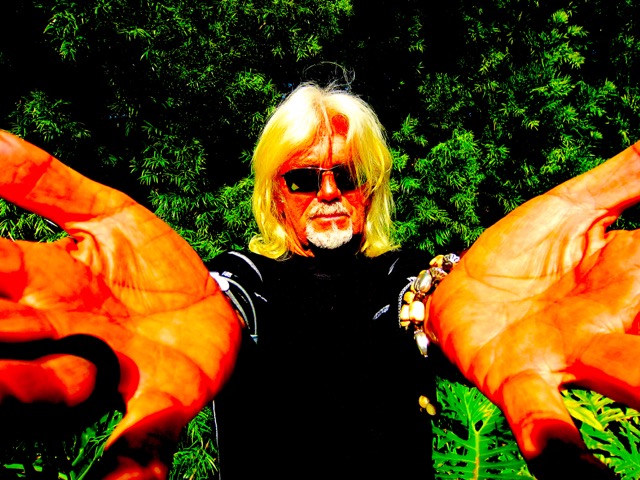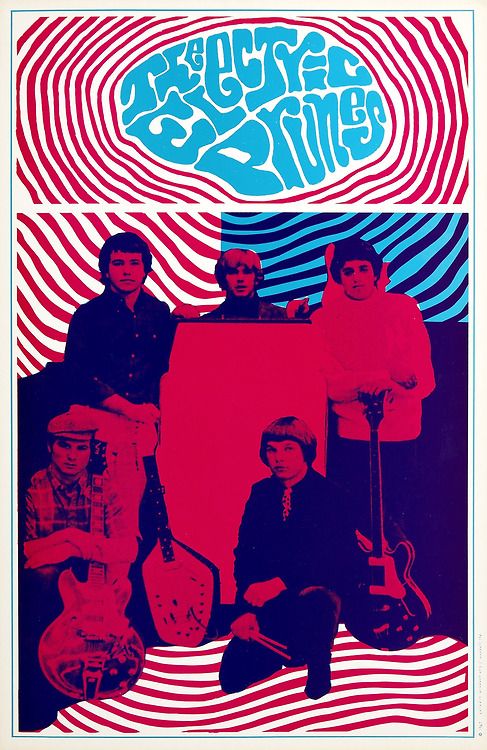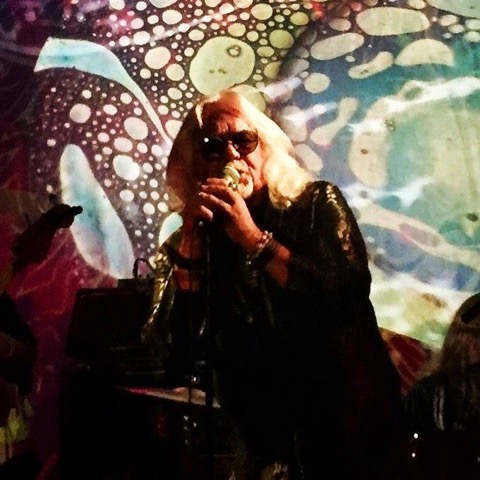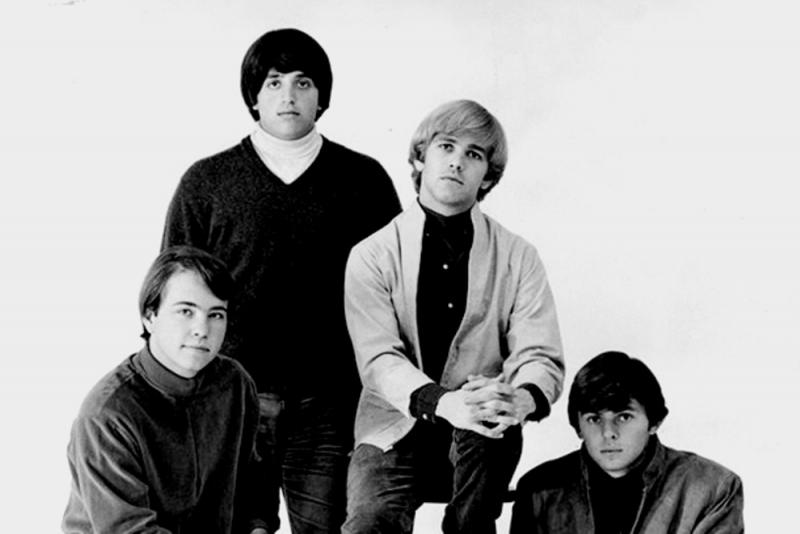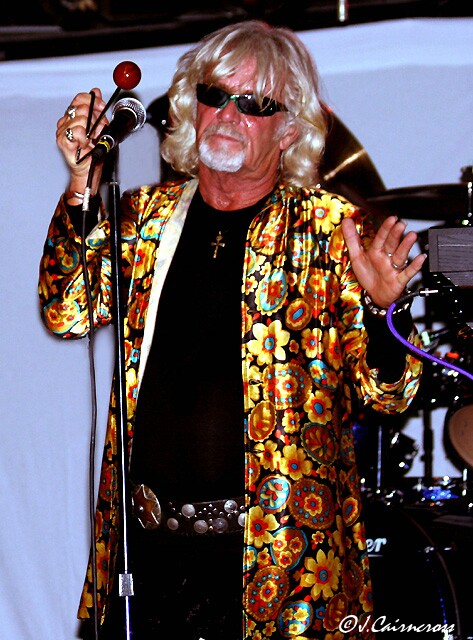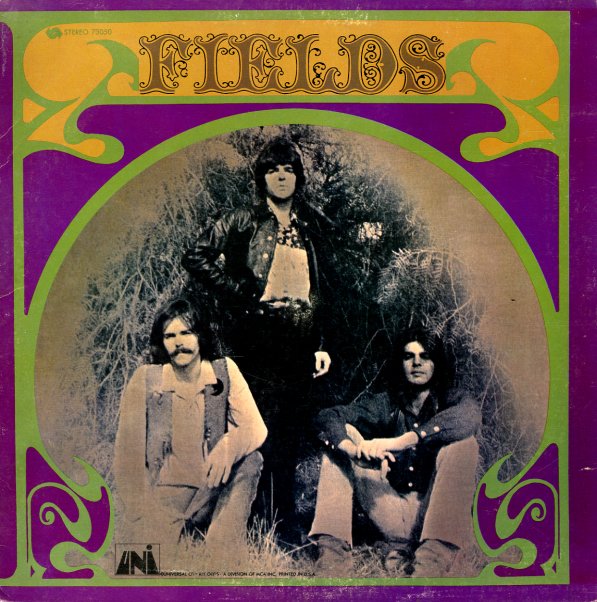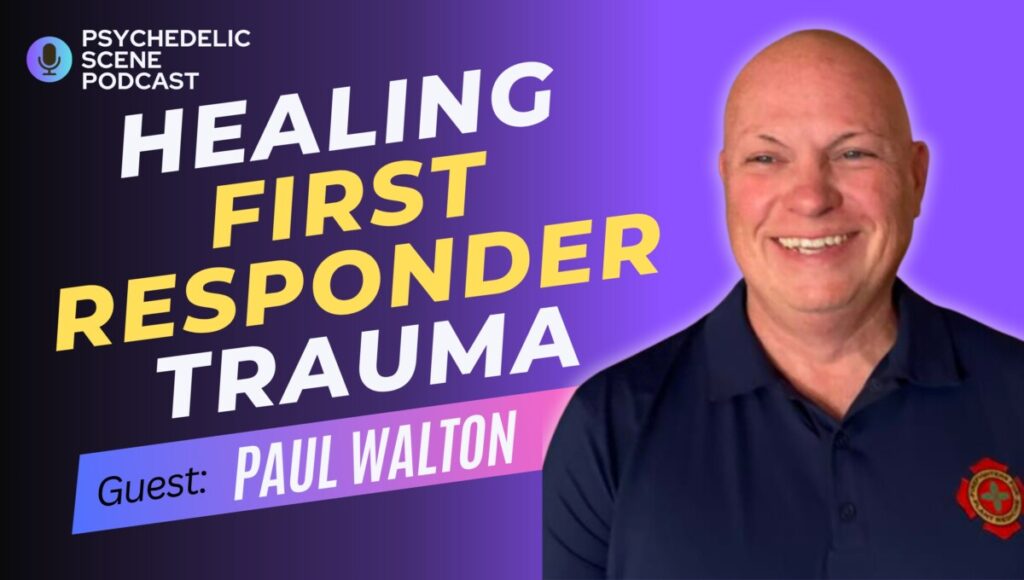Interview: James Lowe of The Electric Prunes
Interview: James Lowe of The Electric Prunes
LeValley:
I’m Jason LeValley with Psychedelic Scene, and I’m here talking to James Lowe, the vocalist, guitar player and frontman for the Electric Prunes. James, thanks for being here.
James Lowe:
Thank you for having me.
LeValley:
Of course. Now, your first album came out in April of 1967. How old were you at the time?
Lowe:
Oh God, I didn’t know you’re going to ask me that. I don’t know, I was like 22 or something like that.
LeValley:
Okay, so, pretty young.
Lowe:
Pretty young, yeah.
LeValley:
“I Had Too Much to Dream (Last Night)” was a #11 hit in the US in 1967. What was it like to have a hit record at that age?
Lowe:
Well, we had been trying to have a hit record, so it wasn’t like it came as a total surprise. Well, of course having it did, but not the attempt at having it. We recorded it in ‘66, and we had put out one other record called “Ain’t It Hard”.and it didn’t do anything. So, when we put out “Too Much to Dream”, we just expected the same thing. Nothing will come of it. And then things started happening with it that kind of lit the fire, you know, so what did it feel like? It felt like. I’ll tell you. I’ve often said this when we heard it on the radio the first time we stopped the car and everybody got out and started punching each other.
LeValley:
Yeah.
Lowe:
Well, I don’t know. It felt good. It felt good.
LeValley:
Yeah, I’ll bet.
Lowe:
Yep.
LeValley:
You guys were known as a psychedelic band, of course. Were you guys using psychedelic substances?
Lowe:
Well, I think maybe some of us were, but it wasn’t the core of the band. We didn’t get high, sitting in there and record and stuff. It wasn’t like that. The people that did use any substances used it on their own. And sort of apart from the band. We didn’t make it a part of the music or a part of the band, even though people associate it with that.
LeValley:
Right. I mean, the sound and the lyrics both seem to reflect a psychedelic vibe.
Lowe:
Well, that word didn’t exist then. See, when we started doing it, all of a sudden, the word psychedelic popped up. And then every woman was going to Orbitz Box in LA and buying a psychedelic dress, and it became sort of commercialized, you know?
LeValley:
Well, I’m pretty sure the word existed. It just may not have been part of the vernacular at the time.
Lowe:
Maybe. Maybe.
LeValley:
So, you came out with the second album that didn’t do quite as well as the first.
Lowe:
It didn’t, yeah.
Lowe:
Our producer was off, uh, Dave Hassinger was off doing a Grateful Dead album because our thing became a hit. He got to do the Grateful Dead, so he went to San Francisco. He was doing the Grateful Dead album, and we were working on Underground, our second album. He didn’t have much involvement in that. And he told me when he came back that it was terrible and that I would be. That would be it, you know? So I got the authorization from him to try and hate it, but I didn’t hate it.
LeValley:
To try and hate it?
Lowe:
You know, trying to say, well, I don’t like it either, you know, but I. But I like some things on there. And it was more of us, more just us doing what we wanted to do. It wasn’t about hit records at that time. See, everybody was trying to be The Beatles, and the record companies were trying to sign that group that was going to give them 15 hits in a row. And for me, it didn’t… That isn’t what we got into it for.
LeValley:
Well, the second record allowed for more self-expression. You got to contribute more of your own songs.
Lowe:
Right. We did, yeah.
LeValley:
So it was more satisfactory in that way, I imagine.
Lowe:
Yes, it was, very much.
LeValley:
Yeah. So, the third album, which I actually know some people that have a great fondness for, Mass in F Minor was a little strange because it was. It had a religious theme, I think, and it was sung in Latin and Spanish.
Lowe:
Right.
LeValley:
What made you agree to do that album?
Lowe:
Well, I had been an altar boy, and I knew the whole mass in Latin, so I thought, Latin? Wow, that’s weird. And Dave Axelrod was a good guy. We went and rehearsed with him, and, you know, Mark and I talked through the whole thing a number of times. It didn’t come out exactly like what we had talked about, but I thought it was a good. My mom would really like that, you know? That I was doing a Catholic mass, being from a Catholic family, and it sort of got rid of the “Too Much to Dream” psychedelo function. And so I thought, well, what the hell? There’s a lot of other things recorded that you wouldn’t think would be. And so that’s the reason we did the project.
LeValley:
Yeah.
Lowe:
Dave Axelrod was managed by our manager.
LeValley:
Well, what was it like working with David Axelrod?
Lowe:
Well, he was the guy that stepped up and went tap, tap, tap, and then the band started playing. You know, we were a garage band. We didn’t know anything about that, you know.
Pamela Lowe
LeValley:
Right. So, it was kind of like an orchestra conductor trying to conduct a garage band.
Lowe:
Exactly. It was a cultural shock for us, but we lived with it. We got through it. We expected we were going to be left some freedom at the end to put some of our ideas in there, you know, but it was all charted and everything. There’s no place in there to put your thing in if you want it. And we were actually in Europe when it came out. I didn’t even know they were going to put it out. And it came out when we were over in England.
LeValley:
And then one of the, I think the lead track, “Kyrie Eleison” or something, got picked up for the movie Easy Rider, which gave it kind of a new life.
Lowe:
Right. And people considered it must be cool if, you know, if those guys. I don’t know why they picked it. I never found that out and I never got paid for it, so it’s a double whammy.
LeValley:
Well, you know, I recently posted something on the Psychedelic Scene Facebook page about your lawsuit in 2004–twenty years ago– concerning royalties owed to you by the music publishing company and the label. Was that part of that? What can you tell me about that?
Lowe:
This was when? In 2004?
LeValley:
Yes.
Lowe:
Well, yeah, we probably did file some stuff. Mark would handle all of that stuff. I had nothing to do with it, so we probably did. We never gave the name away. I never signed off on the name. Dave Hassinger’s wife asked me if they could use it, and I said, “Sure, why not? I’m not going to use it”. But they never had the rights to the name. They just used it, as many people have.
LeValley:
Oh, so they used the name the Electric Prunes, but didn’t pay you for the royalties that came from. You did get paid for the work that you did on the original three albums?
Lowe:
Yeah, I guess we did. Yeah. No, the thing was that Dave Hassinger was in the middle of all this. We weren’t signed directly to Reprise. We were signed to him, and he signed on to Reprise. And like the Dunhill album of Easy Rider, they owed us $10,000 for that. The last time I saw Dave, he said, oh, Maureen spent it. His then ex-wife, he said, oh, she got the money and spent it, so what are you going to do? And then she was dead by the time that he told me that. So, there wasn’t any way to go ask her for it.
LeValley:
Oh, well, that’s an unusual story.
Lowe:
We never did all this for the money anyway, so it was, you know, when it became boring and we felt like we were being used and we didn’t make any money, that’s when we all quit.
LeValley:
Right. You know, there’s been a renaissance, a renewal of interest in psychedelic music over the past 15 years or so, in particular. Has that resulted in revenue for you? And, I mean, has that. I assume that the Electric Prunes are getting streamed quite a bit and so forth.
Lowe:
Well, we get something from it.
LeValley:
Yeah. Have you noticed any kind of like a bump in royalties?
Lowe:
Yeah. There was a bump when we came back and reformed in 2000, and Steven Van Zandt was probably the key issue in that. He kind of dared me to come out into New York and play and would bring the band out there. So, once we started doing that, then we started, because I had a studio, we started recording more things. And if you look, you’ll see there’s probably five albums that we did after that, just because it was construction we want. Mark and I wanted to do that, and I think we’ve gotten as much notice as we deserve, you know?
LeValley:
Okay.
Lowe:
Some people know us, so.
LeValley:
Great. So, you left the band after the third album came out, right?
Lowe:
Right.
LeValley:
And then Kenny Loggins was briefly in the band. Did you ever cross paths with him?
Lowe:
Yeah, I used to see him every once in a while. Yeah, I went down and saw him. In fact, they invited me to PJ’s where they did the presentation of the act or whatever. You know, I went down there and saw them. Yeah.
LeValley:
So you saw Kenny Loggins perform with your old band?
Lowe:
Yeah, but he didn’t play the role you think he would. You know, he didn’t step up there like the center. You know, he was sort of off to the side a little bit, right. Adding his great stuff.
LeValley:
He was unknown at the time.
Lowe:
Of course he was. Mark thought he was the best guy he ever played with. He really liked him.
LeValley:
Okay, after leaving the Prunes, you worked with Todd Rundgren and the Nazz, Todd Rundgren’s late 60s psych band. How did you connect with that group and Todd Rundgren, in particular?
Lowe:
He came to a studio that I was engineering some things at, and Todd and I got to talking in the lobby, and his manager, John, I can’t remember his name, John something or other kind of hooked us up and said, “you guys should work together”. I was working with Van Dyke Parks and some other people that Todd liked. So, their engineer back in the East Coast couldn’t stay awake for their recording, so all the requirement was, was that I would stay awake. So, we started recording at IB Sound and we did, gee, we must’ve done five albums there. Four or five albums. And then we did an album with Hunt and Tony. Sales.
LeValley:
Oh, yeah. Soupy Sales. His sons.
Lowe:
Yeah, they’re still my close friends. Oh, yeah, yeah, yeah. We made an unbreakable bond on that record.
LeValley:
How’s that?
Lowe:
And Utopia, they. Todd put together Utopia. You know, they were in Utopia. And I went back there to the East Coast. Albert Grossman brought me back there and we were going to do all these live shows and everything, but I ended up leaving before that started. We did a few things, but not like we were supposed to.
LeValley:
Okay, I know one of those guys. At least one of those guys played in Tin Machine with David Bowie, too.
Lowe:
Yes, they both did. Hunt played drums and Tony played bass.
LeValley:
All right.
Lowe:
Yeah, David Bowie really liked Tony. He thought he was a star.
Lisa Lowe
LeValley:
Okay, what’s your favorite memory of being in the Electric Prunes?
Lowe:
I would say probably playing with Cream in LA. At the LA, I don’t know, sports center, whatever. It was some place that we played. That was a great night. That’s one I remember for a long time. Steppenwolf, Cream. I don’t remember who else, but it was. It was a good night.
LeValley:
So you guys opened for those acts?
Lowe:
We were right before Cream, so Steppenwolf and whoever it was opened for us.
LeValley:
Yeah. Well, that sounds like a great show.
Lowe:
It was cool. Yeah, yeah.
LeValley:
So, the Electric Prunes are still active, right?
Lowe:
Well, they have been until right now.
LeValley:
You just ended the band just now.
Lowe:
Well, I’m gonna. We’re gonna give up the ghosts. The band members don’t know it yet, but we’re… When Mark was playing with. He was playing with Billy Corrigan on his live dates. He would play bass for him on the live dates. And he came to me and said, “Hey, Billy wrote a song for us and I was like, “OK, right”. So I went to Cary Brown’s studio and. And sure enough, it was a song. And I thought, well, you know what? We should record it. So, we recorded that song and another one, a b-side, by him. So, I’ve had these things all this time, and I’ve never done anything with them. And I thought, that should be our last recording, because my son has a band called Jesus Mind Glaze, and the song is called “Jesus Needs a Hit”. And I thought, nothing could fit my boy better or us better, or whatever. And I just think we should turn it over to younger guys now. You know, I’m creaking everywhere. I still enjoy doing it, but I. But I’m creaky.
LeValley:
Well, I mean, isn’t enjoying it what it’s all about?
Lowe:
Well, yeah, it is. It’s about having fun with it. And I’m still having fun, but it’s just time to move on, you know? You sort of know when it is. But we will put out this one CD, which will just be a 45, you know, “Jesus Needs a Hit” and “Medicine”, the other song.
LeValley:
Wait, what do you mean? I thought that was your son’s band that had that song.
Lowe:
No. I said I would record this because my son has a band called Jesus Mind Glaze.
LeValley:
Oh, I see.
Lowe:
I think “Jesus Needs a Hit”. So I said, I’m going to record this. You’re going to have the last thing the Electric Prunes recorded, and I’m going to put it out for him, hoping that he finds that hit.
LeValley:
Okay. All right. You mentioned before that you’re now in the Dominican Republic. Are you living there full-time?
Lowe:
No, I live here part-time. I bought a house down here 35 years ago, and I’ve been coming here ever since. I love this place.
LeValley:
Okay.
Lowe:
Surfing. Surfing. It’s, you know, perfect.
LeValley:
Well, since you are ending, effectively, the Electric Prunes, what are you going to do now?
Lowe:
Probably nothing. I don’t know. I have a lot of interests. I like making films. I like, you know, I’ve done a lot of things. So, I think I will probably try to find some way to help other people– to help other guys that are trying to do what I did. You know, I find there’s a lot of interest in that. People say, how do you do this? And how’s that? How does that work? So maybe I can put a voice in there and help them out.
LeValley:
Well, that’s very noble.
Lowe:
Yeah. Sounds good, anyway.
LeValley:
All right, James. Well, that’s about all I’ve got for you. Do you have anything that you want to share before we go our separate ways?
Lowe:
Well, the one thing I would like to say is that we thank everyone who ever listened to us. I mean, I know what it’s like to listen to a band, or to hear a band, you know? And enough people, not magnanimous, like, an enormous group, but just for a little group from Woodland Hills, a lot of people listen to us, and that’s very cool. And we certainly thank them all and thank the people that write to us, ask about things. We thank them all for being there.
LeValley:
Great. One little thing I’m going to say is that I love the song “Onie”, which I think is an underappreciated one, but it’s always been one of my favorite songs of the band’s, you know.
Lowe:
A lot of people like that song. That song was written by Nancy Mantz to her daughter, who was kind of going astray or something, I think, you know? And so she wrote that song for her.
LeValley:
Wow. Well, that’s interesting. I’m gonna have to listen to it from that perspective.
Lowe:
Good idea.
LeValley:
All right, James. Well, thank you so much for taking the time. I really appreciate it.
Lowe:
Well, thank you very much for asking, Jason. You go on and have a great, great day.
LeValley:
Thanks. You do the same.
Lowe:
Okay. Ciao.
LeValley:
Ciao.
Jan Carincross
Gallery
Recent Articles

Loading...
Vinyl Relics: Would You Believe with Billy Nicholls
- Farmer John
A Tale of Crescendo ~ Chapter 9: The Clash; Chapter 10: The Reckoning
- Bill Kurzenberger

